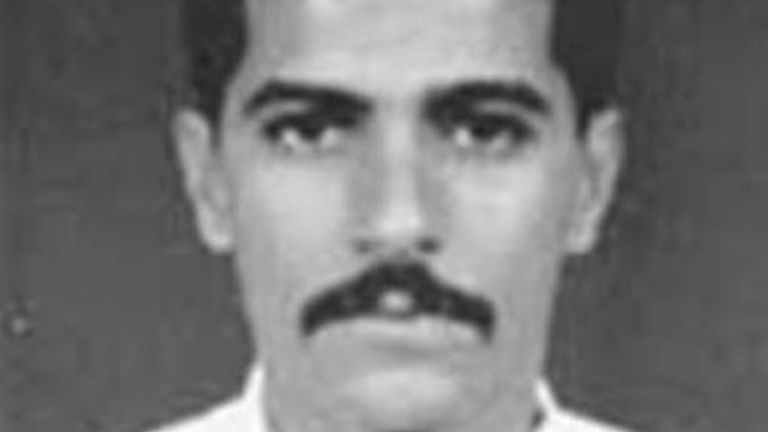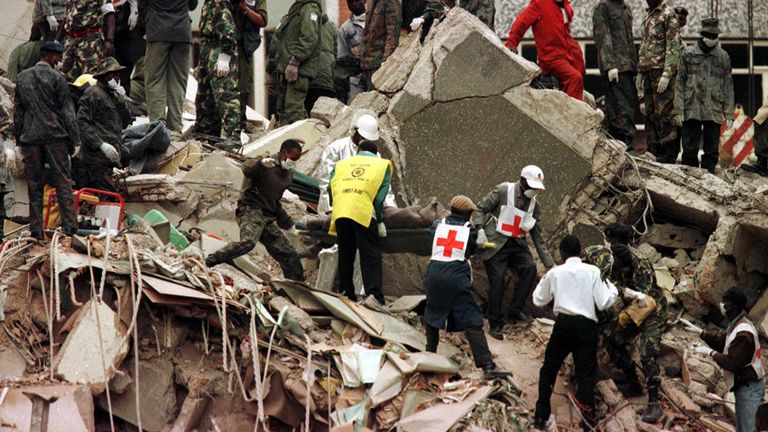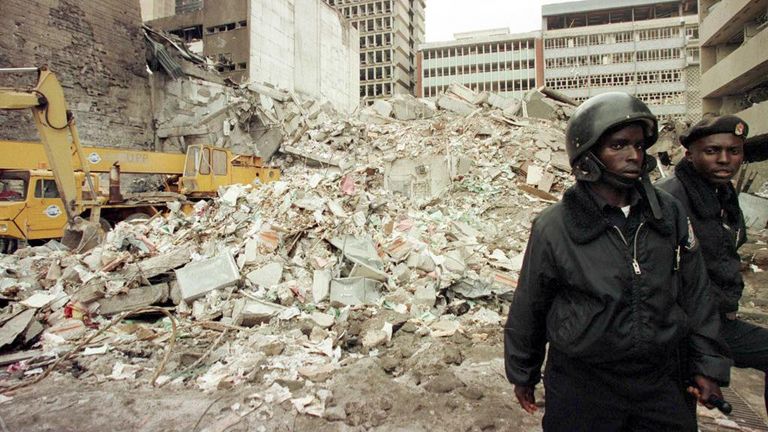Abdullah Ahmed Abdullah - al Qaeda's second-in-command - is reported to have been killed in Iran by Israeli operatives three months ago.
Going under several aliases, including Abu Muhammad al Masri, the Egyptian-born militant had long been featured on the FBI's "Most Wanted Terrorists" list.
He was gunned down by two men on a motorcycle in the streets of Tehran on 7 August, at the behest of the United States, according to the New York Times.
Masri was said to have been killed along with his daughter, Miriam, the widow of Osama bin Laden's son Hamza bin Laden.
The paper says Iran's official news media identified the victims as Habib Daoud, a Lebanese history professor, and his 27-year-old daughter Maryam - however, the claim is that those names were simply an alias.
Masri stood accused of helping to mastermind the bombings of multiple US embassies in Africa in 1998.
The almost simultaneous attacks in Nairobi, Kenya, and Dar es Salaam, Tanzania, killed 224 and injured more than 4,500.
An FBI poster, describing Masri as around 58-years-old, with a scar on the right side of his lower lip and possible moustache - offered up to $10m (£7.6) for information leading to his capture.
Masri was a professional football player in Egypt's top league as a youth, according to official documents previously filed in lawsuits in the United States.
By the late 1990s he is understood to have been one of Bin Laden's closest associates.
Bin Laden was the al Qaeda chief at the time of the September 11 attacks in 2001, and was killed in a US raid in Pakistan ten years later.
The paper cited intelligence officials as its source for Masri's death, but Israel, America and al Qaeda are all yet to publicly acknowledge the killing.
On Saturday, Iran denied the report, saying there were no al Qaeda "terrorists" on its soil.
Foreign ministry spokesman Saeed Khatibzadeh blamed the US and Israel for "tying Iran to such groups by lying and leaking false information" in a bid "to avoid responsibility for the criminal activities of this group and other terrorist groups in the region".
He called it the "Hollywood script" trap of senior American and Israeli officials, and warned the media not to believe it.
In October, a senior Afghan security source told Reuters that Masri had been killed in the Pasdaran area of Tehran, however Reuters had been unable to corroborate that information.
The Times said US authorities had been tracking Masri and other al Qaeda operatives in Iran for years.
Israel has previously said its intelligence services have penetrated Iran, including saying in 2018 that it had smuggled out an alleged archive of Iranian nuclear secrets.
:: Subscribe to the Daily podcast on Apple Podcasts, Google Podcasts, Spotify, Spreaker
Masri had been living in Tehran since 2015, officials told the Times.
Iran and al Qaeda have historically been enemies due to the Sunni-Shia divide.
The unnamed US intelligence officials are quoted by the Times as saying Iran may have let Masri live in the country freely to conduct operations against their common adversary America.
Despite losing several senior leaders over the last few decades, al Qaeda has maintained active affiliates from the Middle East to Afghanistan to West Africa.
Over the last month, two further senior al Qaeda leaders have been killed in Afghanistan by local security forces.




